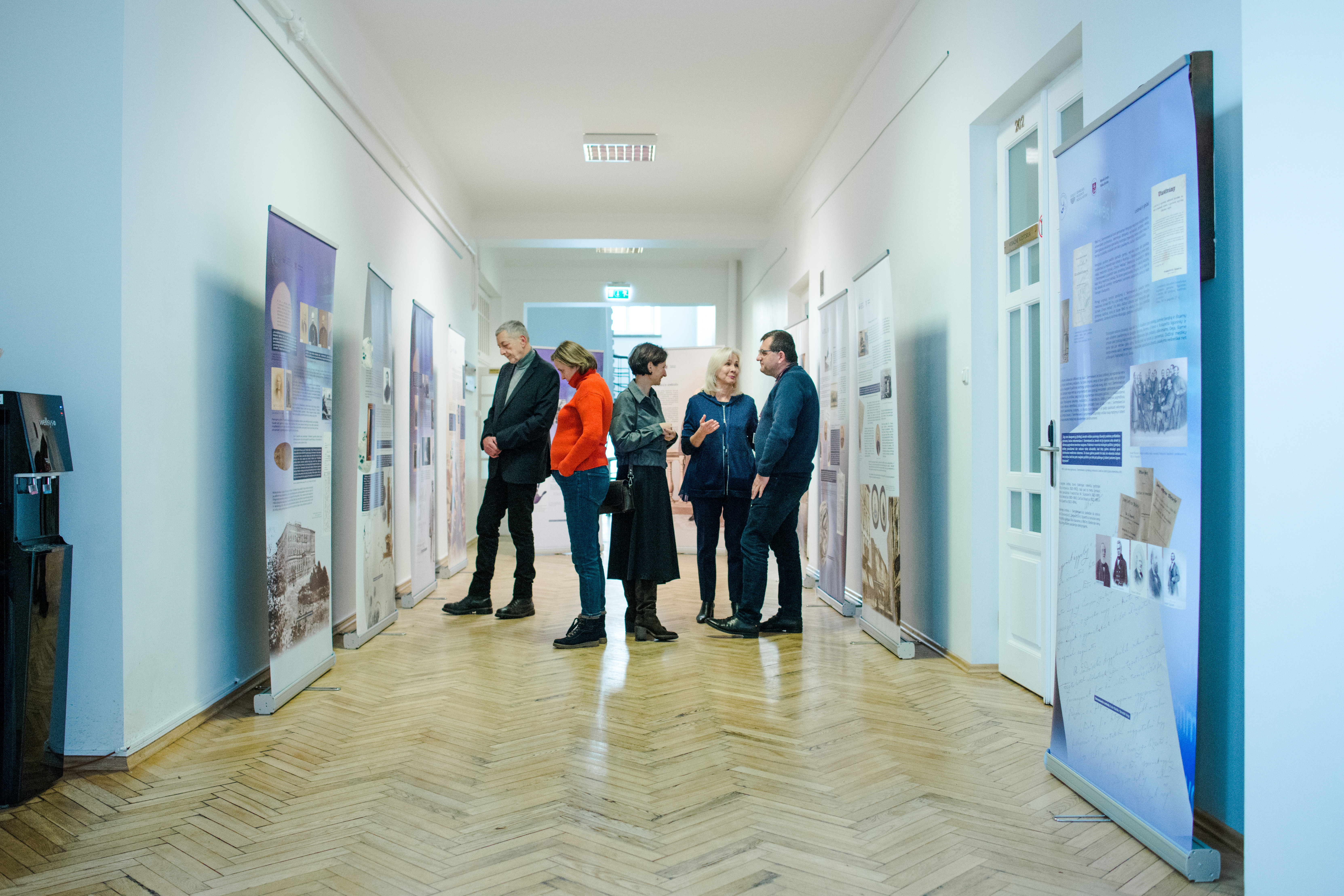 Prof. Dr. Dalius Jatužis, Dean of the VU Faculty of Medicine and Gábor Diczházi, Ambassador of Hungary in Lithuania. Photo: VU MF
Prof. Dr. Dalius Jatužis, Dean of the VU Faculty of Medicine and Gábor Diczházi, Ambassador of Hungary in Lithuania. Photo: VU MF
Similar to most fields of the history of science, medical history predominantly deals with discoveries or changes in scientific thought, investigations and argumentation. Accounts of personal issues or changes in the private lives of scientists or physicians are rarely taken into consideration. Who cares whether William Harvey was happily married when he discovered blood circulation in 1629 or what the mental state of Pasteur was when he launched his first publication about bacteriology in 1865? However, the life of Ignaz Semmelweis, who discovered the cause of puerperal fever and introduced a reliable prevention against it in 1847, has been a mainstream topic in medical history ever since he died in an asylum in 1865.
The Symbol of Semmelweis, an exhibition developed by the Museum of the History of Medicine of Vilnius University Faculty of Medicine in cooperation with the Hungarian Embassy and the Semmelweis Museum of Medical History in Budapest, Hungary, was opened on 2 December this year. Those who participated in the event had the opportunity to learn more about Ignaz Semmelweis—a Hungarian physician, obstetrician, and gynaecologist of German origin—who was the pioneer of antisepsis and to find answers to such questions as why people are overwhelmed by the tragic life of a late doctor. What moves us when we learn about the fate of a man who vigorously stood up for a new solution and despite his best intentions and striking results failed to convince the medical community of the time?
His Excellency Mister Gábor Diczházi, Ambassador of Hungary in Lithuania, welcomed the participants and shared his thoughts on the historical links between Vilnius University and Hungary and the ideas of Ignaz Semmelweis, which triggered a revolution in the pursuit of medical progress. ‘This exhibition is a great example of how doctors of the past have made a significant contribution to the development of medicine. They are remembered with honour for their achievements, and today Ignaz Semmelweis is the reason why we are here”, the ambassador said.
 A fragment of the exhibition “The Symbol of Semmelweis” at the Faculty of Medicine of Vilnius University. Photo: VU MF
A fragment of the exhibition “The Symbol of Semmelweis” at the Faculty of Medicine of Vilnius University. Photo: VU MF
Welcoming the participants at the opening of the exhibition, Professor Dalius Jatužis, dean of the VU Faculty of Medicine, said that history can teach us a lot about the evolution of society, politics and medicine: ‘Knowledge of our roots and heritage is crucial to our understanding of where we come from and where we are going. After all, why do we sometimes repeat the same mistakes over and over again? We either do not know our past or we do not respect it. We should learn from this exceptional history and be open to innovation and new ideas’. The dean of the VU MF thanked all those who had contributed to making this exhibition see the light of day: the Hungarian Embassy, Ambassador Diczházi, Economic Attaché Peter Schmidt, the Semmelweis Museum of the History of Medicine, and the VU MF.
Doctor Žana Bumbulienė, professor at the Clinical Institute of Obstetrics and Gynaecology of the Institute of Clinical Medicine of the VU MF, addressed the audience by recalling the story of the life of Semmelweis, which provided a better understanding of the context of the time and of the reasons that encouraged him to seek change. She noted that the innovations proposed by the German-born Hungarian doctor had not immediately produced the desired results. ‘Today, Semmelweis’ teachings are known to everyone, not just doctors or students. Hand and instrument disinfection is an integral part of our daily routine’, Professor Bumbulienė said.
You are kindly invited to visit the exhibition The Symbol of Semmelweis at the Faculty of Medicine of Vilnius University (M. K. Čiurlionio g. 21, Vilnius), in the corridor by the Great Auditorium.
